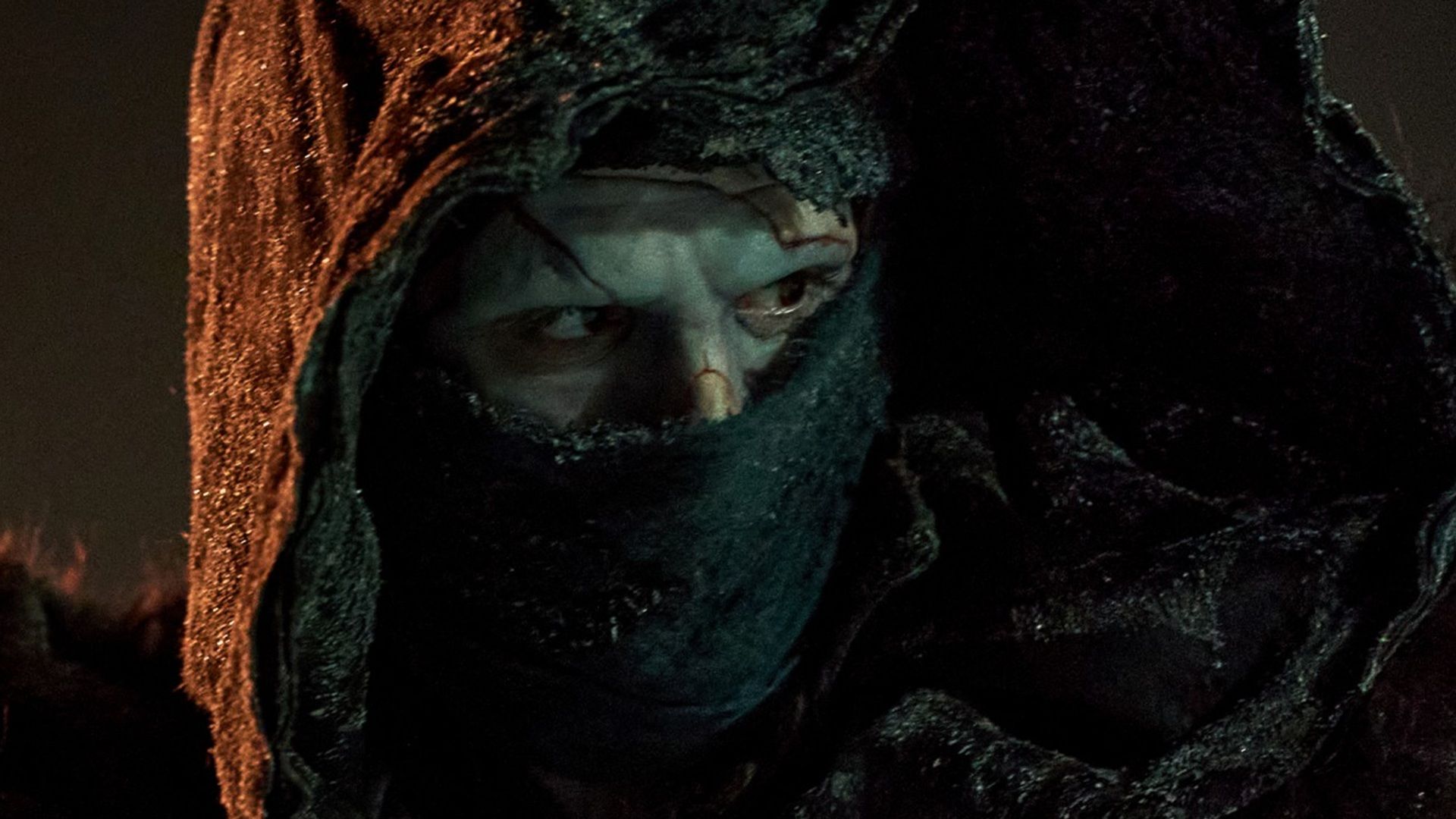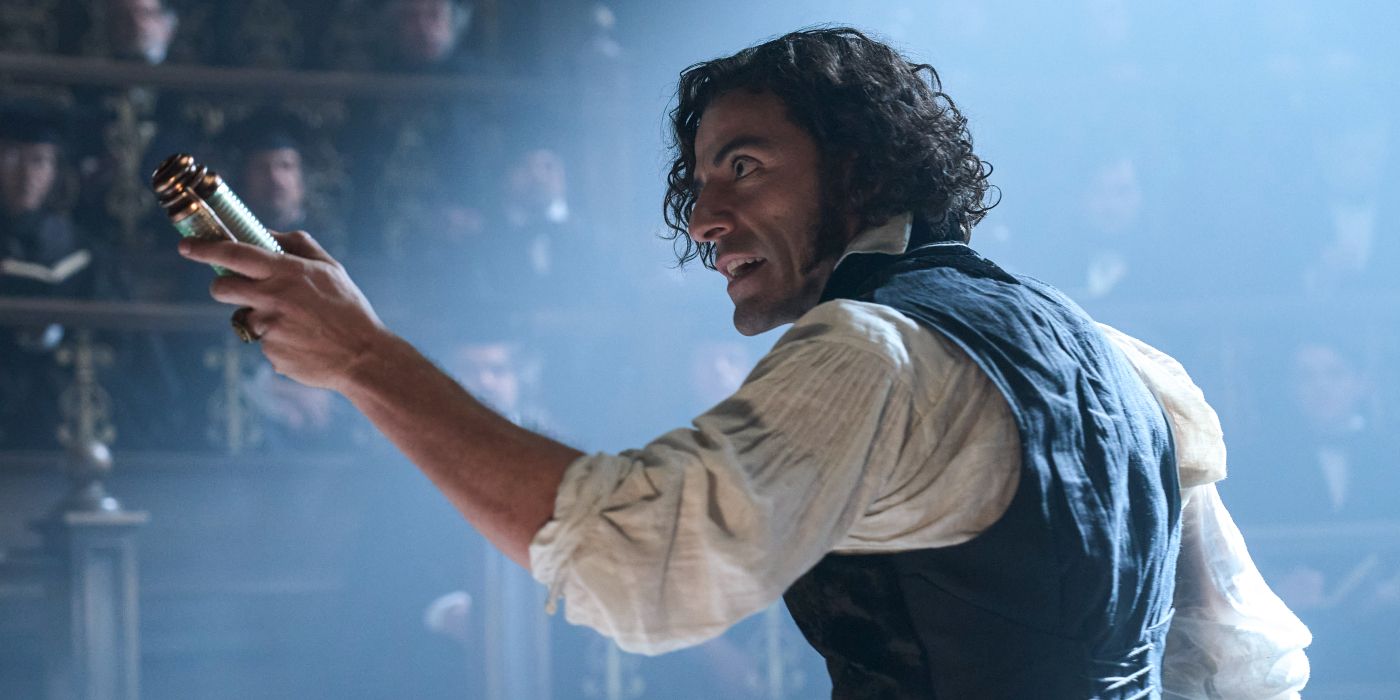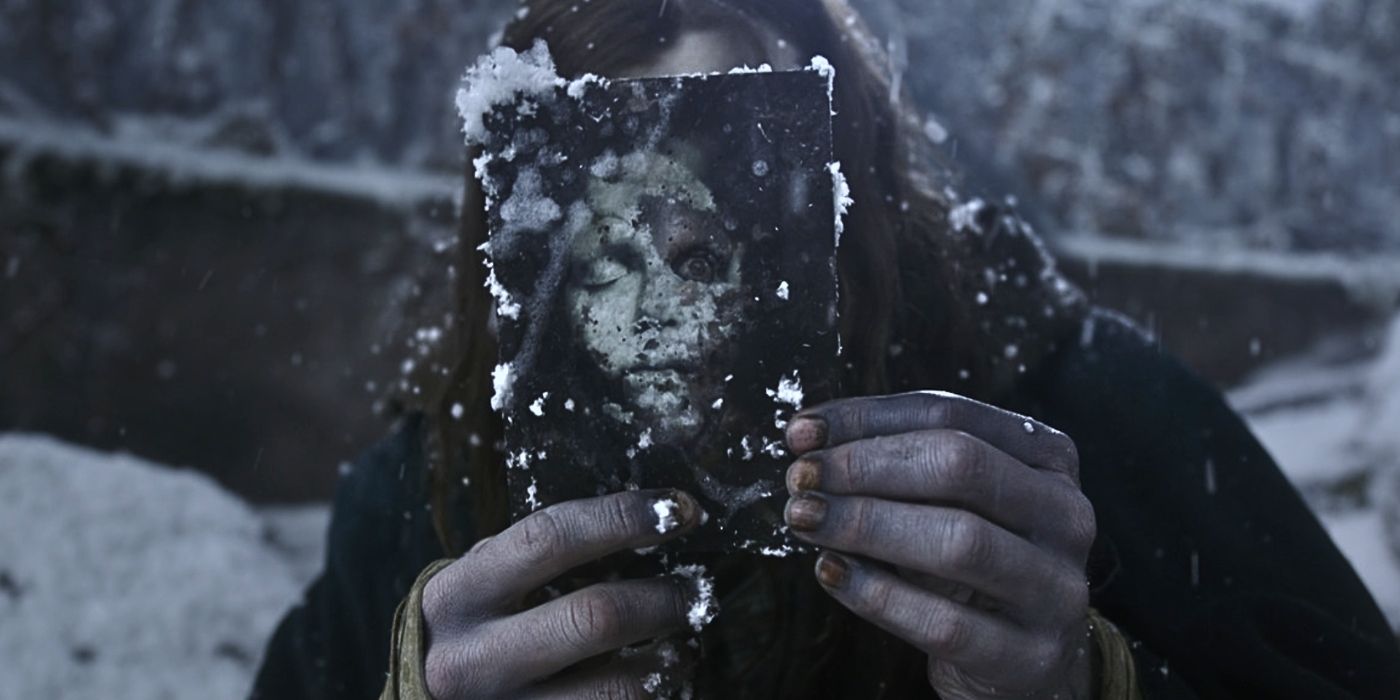
Guillermo del Toro is widely considered the leading director of monster movies today, and with good reason. Films like Pan’s Labyrinth, The Shape of Water, and his stop-motion Pinocchio showcase his ability to create creatures that are both frightening and stunningly beautiful. These beings aren’t just scary; they add depth and meaning, transforming his films into genuine works of art. Del Toro is highly respected within the film industry and adored by audiences, evidenced by his three Oscar wins and the talented actors who consistently work with him. He’s also a prominent figure at film festivals and openly shares his passion for his craft.
Guillermo del Toro has long expressed his desire to make his own version of Frankenstein. He’s often talked about how much the classic monster has influenced him since he was a child. It’s also interesting that Mary Shelley’s original Frankenstein novel – considered by many to be the first science fiction story – is about a creator driven to build monsters. So, del Toro and Frankenstein seem like a natural fit.
Despite generally positive responses at fall film festivals, the movie didn’t generate quite the buzz some anticipated. Ironically, the director’s own creation feels like a beautiful but flawed experiment. It began with admirable dedication and was crafted with impressive skill, but ultimately feels slightly off-course, almost as if it was destined to struggle.
‘Frankenstein’ Is a Long-Gestating Labor of Love

Netflix
Guillermo del Toro has often shared a story about how reading Frankenstein at age seven finally resonated with him, despite growing up Catholic. He explained during Q&As at the Toronto International Film Festival and in subsequent interviews that Boris Karloff’s portrayal of the creature felt more meaningful to him than traditional religious teachings, stating, “That’s the Jesus I’m gonna follow.”
Del Toro has said his version of Frankenstein represents the peak of his life’s work, deeply influenced by the characters and story. The film explores themes he’s considered throughout his career, such as the conflict between faith and science, the complexities of father-son relationships, and the blurry lines between heroes and villains.
Del Toro shared that making his Frankenstein film was a challenging journey that took many years. After decades of wanting to tell this story, and now with more life experience as a son and father, plus thirty years in the film industry, he finally felt prepared to begin. Production started in Toronto in early 2024 with Oscar Isaac and Jacob Elordi cast as Dr. Victor Frankenstein and the Creature. In late 2025, the film gained significant recognition at the Toronto International Film Festival (TIFF), where del Toro is a beloved figure, earning the runner-up spot for the People’s Choice Award.
The praise for this film goes beyond just local pride. Guillermo del Toro is a talented writer and director, and this adaptation of Frankenstein works really well. He stays true to Mary Shelley’s original story without copying it exactly, keeping key elements like the Arctic setting and Gothic atmosphere. The film highlights Victor Frankenstein’s quick rejection of his creation and presents the monster with more understanding than the doctor. Overall, it’s a very enjoyable and faithful retelling of the classic story.
Guillermo del Toro’s choices in adapting this story really play to his strengths as a director. The visual design is stunning – a detailed and darkly beautiful version of the 1800s. He expertly balances disturbing imagery, like reanimated body parts, with beautiful costumes and settings. This careful balance is exactly what del Toro’s fans expect, and it makes this version of Frankenstein different from the more lighthearted, classic ‘mad scientist’ portrayals we often see.
The strongest part of the film is definitely Jacob Elordi’s performance. Frankenstein needed a Creature who was believable – not too frightening, but also not comical. Elordi’s height is a good fit for the role physically, but it’s his ability to portray the Creature’s emotional journey – from a childlike state to full self-awareness – that truly makes the character compelling and moves beyond simple shock value.
Isaac delivers a solid performance as Victor, capturing the character’s look and mannerisms. However, the portrayal of Dr. Frankenstein itself feels surprisingly shallow. This is the film’s biggest problem: a story meant to show inner beauty hidden beneath a frightening appearance ends up being visually impressive but lacking in depth.
‘Frankenstein’ Can’t Live up to Expectations

Netflix
I think a lot of people will really enjoy Frankenstein, especially if they watch it around Halloween or when it occasionally plays in theaters—though most of us will probably see it on Netflix, and it’s hard to fully appreciate the artistry that way. But honestly, I don’t think it will go down as Guillermo del Toro’s greatest film, even though it clearly means a lot to him. The movie starts with an introduction and then splits into two parts: first, we see things from Victor’s point of view, and then from the Creature’s. That structure could have worked well, but del Toro added some characters and changed plot points that really bogged down the first hour and made it feel slow.
Charles Dance embodies a cold and strict father figure, much like his portrayal of Tywin Lannister, but this version isn’t outright evil, and it doesn’t significantly impact his son’s actions. Christoph Waltz plays Henrich Harlander, a kind of guardian to the main character, and the uncle of Elizabeth (Mia Goth, who plays the typical Victorian-era quirky and attractive young woman fascinated by the mysterious). Unlike the book, Elizabeth is engaged to Victor’s brother, William (Felix Kammerer), though his role is minimal. Unfortunately, the script doesn’t give any of these characters enough depth. William is simply a contrast to Victor, Elizabeth exists mainly as a love interest, and Henrich feels like a plot tool that doesn’t quite deliver.
The biggest flaw of the screenplay is how straightforward it is. The film’s central idea – that creating life is a dangerous act reserved for ‘Monsters’ – is already clear from the movie’s tagline and promotional materials. When Guillermo del Toro excels, he uses symbolism and visual storytelling, allowing his stunning imagery to convey meaning. However, Frankenstein lacks subtlety. Victor and the Creature explicitly explain their stories and the film’s themes, leaving no room for the audience to interpret or discover anything on their own.
Read More
- Lacari banned on Twitch & Kick after accidentally showing explicit files on notepad
- Adolescence’s Co-Creator Is Making A Lord Of The Flies Show. Everything We Know About The Book-To-Screen Adaptation
- The Batman 2 Villain Update Backs Up DC Movie Rumor
- YouTuber streams himself 24/7 in total isolation for an entire year
- Warframe Turns To A Very Unexpected Person To Explain Its Lore: Werner Herzog
- What time is It: Welcome to Derry Episode 8 out?
- Elizabeth Olsen’s Love & Death: A True-Crime Hit On Netflix
- Amanda Seyfried “Not F***ing Apologizing” for Charlie Kirk Comments
- Jamie Lee Curtis & Emma Mackey Talk ‘Ella McCay’ in New Featurette
- Gold Rate Forecast
2025-11-02 04:19